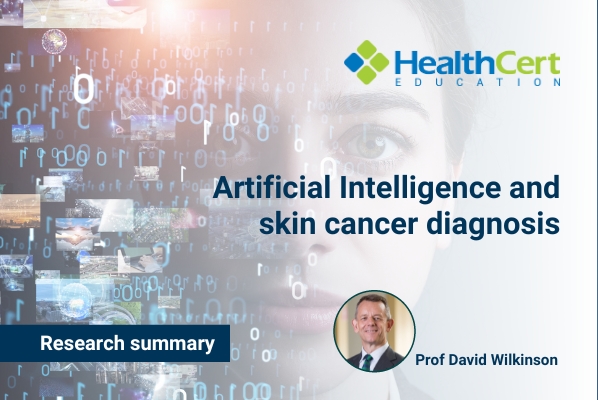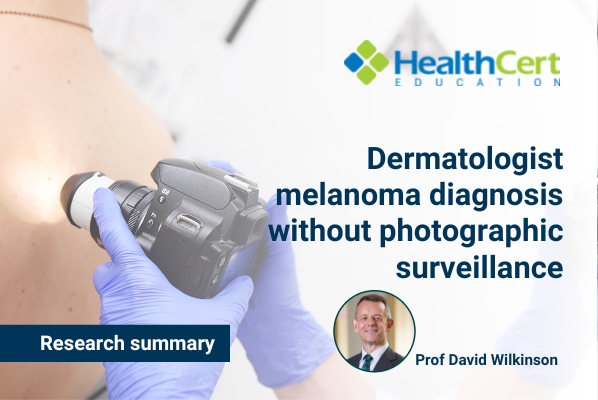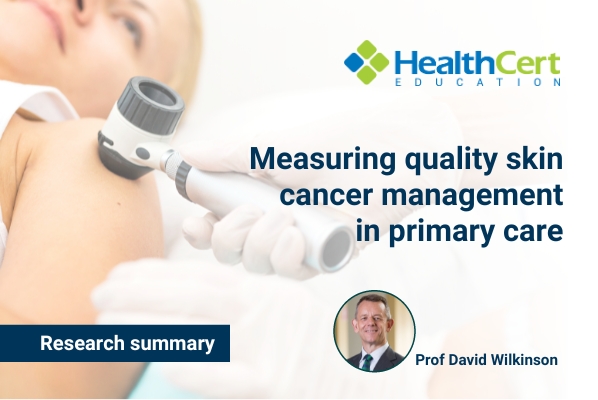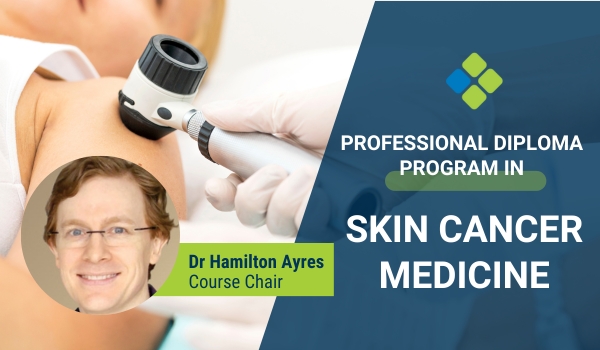We have all heard about the recent and rapid developments of Artificial Intelligence (AI) and many of us have tried using ChatGPT for a range of purposes. Clearly, the world is changing rapidly (again) and we need to think about what the implications are for medicine.
For more information on this topic, you may be interested in the HealthCert Professional Diploma in Skin Cancer Medicine: medical courses online + with optional workshops ideal for GP training towards a focused expertise in skin cancer.
Many of us are using, have used, or are aware of the use of AI within skin cancer diagnosis and management, including alongside its use within digital imaging systems. We know already from research published that AI systems are at least as accurate as board-certified dermatologists in diagnosis of skin lesions.
The paper we are looking at this month studied the impact of having AI work with a dermatologist. Lesions were viewed by the dermatologist alone, then by the AI and the results shared with the dermatologist who was asked to review the lesion again. The final answer was determined by pathology (in about half of all cases) or follow-up and expert consensus if the lesion wasn't excised.
What did the paper find? First, AI alone performed better than dermatologist alone. Second, working together diagnostic accuracy improved, sensitivity reached 100% and specificity also improved. The benefit of adding AI was greater among less experienced dermatologists.
This paper is well worth reading. It reinforces other research that indicates that AI is, and will be, very powerful in training doctors, in supporting us in our work as we develop experience and expertise, and in ''backing us up'' to ensure we don't miss things.
Read the full paper here.
– Prof David Wilkinson
For further information on this topic, you may be interested in the HealthCert Professional Diploma in Skin Cancer Medicine.


 1800 867 1390
1800 867 1390

